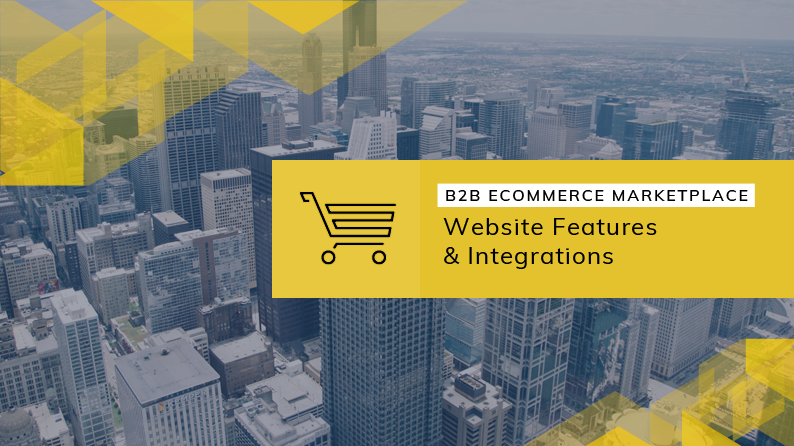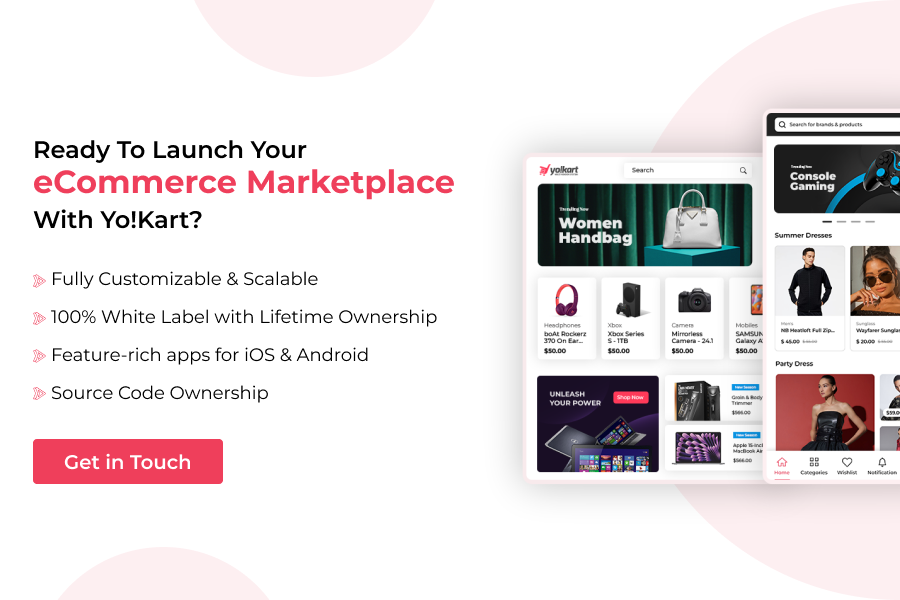If a pharma company aims to make an environment-friendly supply chain, the same will be considered before procuring raw materials. Quality checks in the middle will ensure that selected raw materials leave minimum carbon footprint and are procured while following safe labour practices.
Just like the above example, to succeed in digital, businesses have to consider different aspects beforehand and observe what new models can be implemented. B2C digital commerce has seen tremendous push by major brands such as Amazon. This growth has further paved the way for businesses to explore the B2B segment of digital commerce.
Existing ecommerce marketplace solutions are not built to serve or understand the spectrum of B2B priorities. Thus, the need arises for a specialized B2B ecommerce marketplace website that enable teams work simultaneously, supports traditional processes, offer personalization, help a business nurture relationships, and provide features to execute B2C-like marketing campaigns.
To enable businesses to make better purchase decision, we conducted a research on important features of an ideal B2B ecommerce marketplace website along with third-party integrations. In this blog post, we would like to share the same. Continue reading to know more.
B2B Ecommerce Marketplace – Website Features
Registration

A B2B ecommerce marketplace website registration form can have different fields for a user to submit details such as business name and address, government tax ID, industry, etc. For authenticity, make sure a quality check is in place within which a human being reviews the documents submitted by the user.
Selling

Depending on the vertical a business operates in, a B2B ecommerce marketplace website can be built with varying options to sell. For instance, a buyer can:
- Share the quantity of an item required and sellers can quote a price
- View products from different sellers and avail quantity-based discounts
- Visit the seller page and contact the business through a form explaining requirements.
Individual Web Page Features
Product Listing Page

It is recommended to display product information in list view as it will helps you display more information. Depending on the selling option you want to use in your B2B ecommerce marketplace website, the product information will vary in the listing page.
For example, if you plan to use the selling mechanism in which the buyer can view products from different sellers and avail quantity-based discounts, the product listing page should also show the quantity of a product.
Digital Wallet

To avoid transaction levied on each payment made through payment gateway, the use of digital wallet is necessary. For example, if a buyer has requested refund, considering the amount involved in most B2B transactions, there can be substantial transaction fee associated. To skip the transaction cost, digital wallet is an ideal option for refund.
B2B Ecommerce Marketplace – Integrations
While designing a new application, a business comes across following scenarios:
- For a sense of ownership, a business may want the website to be built from scratch and ignore the use of third-party integrations.
- The people working for that business might be skeptical when entering the uncomfortable zone of unlearning an old application and learning a new one.
While ownership of an application may require a business to spend extra, integrating third-party applications for additional features may reduce the overall cost of the project. In this section, we will look at different third-party applications that a business can integrate with B2B ecommerce marketplace website.
Accounting
FreshBooks
FreshBooks, an easy to use accounting software, that comes with tools for invoicing, expenses, time tracking, projects, estimates, etc.
QuickBooks
An accounting software, developed by Intuit. It comes with features that’ll help a business manage bills, business payments, etc.
Shipping
USPS
A widely trusted postal service, which comes with an API for address validation, shipment tracking, price calculator, label management, etc.
UPS
The supply chain giant, United Parcel Service (UPS), offers developer kit through which a business can ensure the validity of state, compare rates, print labels, etc.
Shopping Cart
SAP Commerce Cloud
A quality product from SAP for large enterprises, which offers support for products with complex specification, purchase processes, multi-channel fulfillment, etc.
OpenCart
OpenCart is a widely used shopping cart system based on open source technologies such as PHP and MySQL. It is suitable for small and medium scale businesses.
Marketing
Google Analytics
Google Analytics is a free to use solution that can help one track transaction data such as affiliation, revenue, shipping, etc., and item data such as item, price, quantity, and more.
HubSpot
A solution that can satisfy all marketing-related requirements, HubSpot, is ideal for most SMBs. With HubSpot, one can use in-depth analytics, build landing-pages, etc.
Suggested Read – Tools For Ecommerce Website To Achieve Marketing Success
Customer Relationship Management
Salesforce
From data-driven insights to artificial intelligence, Salesforce is a one-stop solution for CRM. It is aimed at large enterprises.
PipeDrive
PipeDrive offers an easy to use solution for ecommerce with features like pipeline management, sales forecasting, email integration, etc.
Payment Gateway
PayPal
PayPal is an easy to use service which comes with a well-documented API and offers features such as one-time payment, multi-vendor payment, etc.
Authorize.net
A payment solution from Visa that comes loaded with important API functions such as charge a credit card, refund a transaction, debit/credit a bank account, etc.
Design the Perfect Ecommerce Solution for your Brand
Conclusion
Building the right ecommerce marketplace website for B2B requires one to have necessary insight on what works and what doesn’t. The above-mentioned information on website features and third-party integrations will give you the basis to delve deep into the research and planning phase of creating a B2B marketplace.





